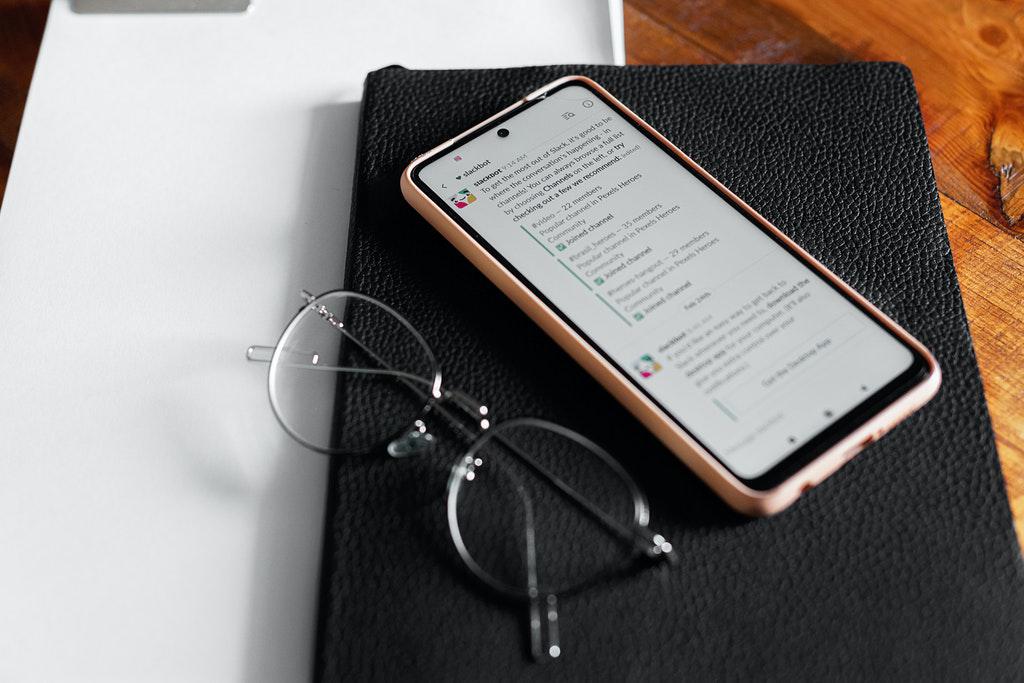Asking the right questions during an interview for a customer service position can mean the difference between finding the right candidate and hiring the wrong one.
But with so many different questions at your disposal, how can you make sure you’re asking the right ones?
In this article, we’ll examine what to ask, how to ask it, and how to develop your own question lists that will fill your customer service roles.
Let’s get started.
The Anatomy: What is a good question for a customer service interview?
All companies have different styles, philosophies, and needs. However, the right characteristics for a customer service employee are remarkably similar among all businesses. Therefore, here are the types of customer service skills you should look for during a job interview:
- Communication skills
A good customer service employee is a good communicator. As part of the job, they need to answer a lot of questions in the simplest terms, and they need to provide these answers to a variety of people in a variety of scenarios. The better they are at communicating, the less customer service training they’ll need.
- Problem-solving skills
Inevitably, customers will have problems with the products or services the customer service employee is representing. That’s why they need to be able to quickly and effectively identify the issue and find the best solution for each client.
- Passion for the role
Although customer service roles are usually common and easy to apply for, the right customer service rep has a true passion for making other people happy. They should want to go the extra mile, and they should feel gratified when they make someone’s day.
So now that you know what you’re looking for, which questions should you use?
Best Questions to Ask in a Customer Service Interview
The following questions are divided into behavioral questions that will help you learn about your employee’s soft skills, common questions to find out more about their personalities and general skills, and situational questions to let you know how they would act in different circumstances.
Customer service behavioral interview questions
- How well do you work under pressure?
- In the past, how have you dealt with difficult customers?
- Have you ever gone the extra mile to please a customer?
- When you’re unclear about what a customer wants or needs, how do you clarify things?
- It’s easy to make mistakes when working in customer service. What’s an example of a mistake you made with a customer? And how did you resolve it?
- Give me an example of how you would handle a challenge.
- Give me an example of the way you usually work on a team.
- How have you resolved a hard problem at work?
- Give me an example of a time when you dealt with an angry customer. What did you do? What was the resolution?
- How do you set goals?
- Give me an example of a situation when you had to explain something complex to a frustrated client. How did you handle this situation?
- Give me an example of a way you’ve motivated your coworkers.
- Give me an example of a time when you turned an unhappy client into a satisfied one.
- How have you had to improvise to solve a problem?
- When your schedule is interrupted, how do you handle it?
- When you’re dealing with multiple customers, how do you prioritize their needs?
- Name the time when a customer was most pleased with your service.
- Have you ever had to make a good impression on an especially important client?
- What’s your proudest professional accomplishment?
- What do you think is the most exciting, energizing aspect of customer service?
- What do you do when a customer complains about a known issue with your product or service?
- How do you stay motivated when clients are mean to you?
- What’s the toughest decision you’ve had to make on the job?
- What’s your definition of empathy?
- In customer service, how do you measure your success?
Common customer service interview questions
- What’s your definition of customer service?
- What appeals to you about customer service?
- What are your relevant qualifications for this job?
- What can you tell me about our company?
- Why do you want to work in customer service?
- At your previous company, what did success in customer service look like?
- What do you think success looks like here?
- Do you have any pet peeves in the workplace?
- Would you say you’re a people person?
- What customer service tools have you used in the past?
- Have you tried our product or service? Did you have any issues with it?
- How would you describe a typical day in a customer service position?
- How would you define the difference between good and great customer service?
- When answering a customer’s question, how do you decide which information to include and which to leave out?
- What’s the last customer service skill you learned?
- How would you use a customer’s feedback to improve your service?
- What are your weaknesses?
- What are you better at today than you were last year?
- What would you say are your strengths and weaknesses when interacting with customers?
- What type of organizational structure most effectively fits with your personality?
- What kind of schedule are you looking for?
- Why did you leave your last job?
- What makes you a great candidate for this specific customer service position?
- Do you think you’ll be working in customer service in ten years?
- What questions do you have for us?
Situational interview questions for customer service
- What kind of customer would you struggle to serve?
- What would you do if you needed to perform a task you’d never done before?
- What would you do if you noticed a customer was wrong?
- What would you do if you had a disagreement with a coworker?
- What would you do if you had a disagreement with your boss?
- What would you do if an angry customer confronted you?
- In your last job, what would you have changed if you could?
- What would you do if a customer asked you a question you didn’t know the answer to?
- How would you deescalate an angry customer?
- What would you do if you were assigned to work closely with someone you deeply disliked?
- What would you do if you were unsatisfied by an aspect of your job?
- How would you handle criticism from a superior?
- How would you pitch our brand?
- What changes would you make if you ran our customer service department?
- What would you do if an employee you managed didn’t meet your performance expectations?
- Which steps do you take when you make an important decision on the job?
- How would you tackle (a specific) client complaint?
- How would you handle a possible crisis, such as an issue with the quality of our products/services?
- How would you make a customer’s day?
- How would you motivate yourself at work when times get tough?
Customer Service Interview Questions That Popular Companies Use
It’s easy to think the following: the larger the company, the more complex and creative their questions will be. But there’s nothing further from the truth.
As we mentioned before, the skills required for customer service jobs are pretty similar, regardless of the company. Nonetheless, you can still learn a lot from their questions, the way they’re presented, and the possible answers they can give you.
Customer service representative interview questions
Since customer service reps deal with customers for a living, they need to be patient and have strong people skills.
Common Question Example

What you can learn from them:
It’s an understatement to say that Microsoft is a large company. So it’s easy to see how a candidate may feel anxious when they attend an interview there.
But that’s only one of the reasons a candidate may feel apprehensive. At the end of the day, a job interview is a very literal evaluation of who they are as a person, which can be quite stressful for anyone.
The solution?
In the beginning, ask a question they’re comfortable answering. This question can be anything, as long as it involves a positive feeling. Sure, you can learn from their answer. But the main reason to ask these questions is to get the interviewee to relax, so you can establish a good rapport with them.
The better they feel, the better their answers will be.
Behavioral Question Example

What you can learn from them:
It’s important to formulate a question the right way. Then you can allow the best, most truthful answer to shine through. You may be tempted to ask, “How well do you work under pressure?” This question would lead the interviewee to respond with some variation of, “Pretty well.” Instead, ask them, “How comfortable would you feel?”
“Comfortable” is a much broader term. Since this question isn’t leading the interviewee to answer a specific way, it allows the person to answer in a more detailed, truthful manner.
Situational Question Example

What you can learn from them:
In customer service, handling angry customers is inevitable. Whether or not the customer is right, a customer representative must have the skills to deescalate the situation as quickly and effectively as possible.
Here, we see how the question is posed—with the additional complication of using the phone. Without any visual queues, the representative has limited resources at their disposal. This situation allows the interviewer to evaluate the person’s language skills and forces the interviewee to come up with solutions on the spot.
Interview questions for customer service managers
Customer service managers must not only be great at customer service but also excel at motivating people and getting the best out of them. They also need to deal with the most difficult customers and be true leaders the team can look up to.
Here’s are ways the top companies find them:
Common Question Example

What you can learn from them:
This question is very common. Nevertheless, it keeps taking people by surprise. Does working for your company mean anything to your applicant? Does anything attract them to it? Or is your company just another one on their list?
If you hire people that know and care about your company from the get-go, you can increase retention, which can lead to better performances and happier employees.
Behavioral Question Example

What you can learn from them:
This question is very important, and it doesn’t get asked enough. A customer service manager’s job isn’t as clear-cut as a rep’s.
This question will allow you to measure how committed they are to their work and how willing they are to go the extra mile—by letting them present you with their best example of going beyond what they’re paid to do.
Situational Question Example

What you can learn from them:
When hiring a manager, you need to find out how they’d act in worst-case scenarios. When trying to determine how seriously they treat your company’s values and resources, this kind of question is very important. It can help you evaluate how well they interact with their team.
Would they fire the employee immediately? Would they be patient? Or would they go the extra mile and try to figure out what’s causing the problem before acting?
Customer service engineer interview questions
A customer service engineer has a unique task. While they typically don’t interact directly with customers, this engineer has to know the customer’s needs and issues in depth. That way, they can develop structures to create better customer experiences.
Common Question Example

What you can learn from them:
A CV can only tell you so much. So if you want to learn about a person’s professional life, ask them about it.
By asking the person to describe their CV, you can get a better understanding of their experiences and their growth—not just where they’ve worked in the past.
Behavioral Question Example

What you can learn from them:
Failure is a part of life. What matters is how we recover from it. In a technical job position such as this one, failure can happen constantly. So when that happens, you need to evaluate their level of responsibility and accountability.
This question lets you evaluate how this person handles failure, how afraid they are of it, and how they make up for it.
Situational Question Example

What you can learn from them:
In a technical role, you need to evaluate your prospect’s skills, in order to find out how good they’ll be at their job. Without providing any assistance, ask them how they solve a very specific problem that has multiple solutions.
By raising a technical problem when they don’t have the technical tools to look into it, you can learn more about the way they work under pressure. You can also find out about their process and their level of technical skills.
Conclusion
There are multiple ways to figure out whether someone is right for a customer service position. All you need to do is define what customer service means to you, ask the right questions, and learn as much as you can from their answers.
With the right questionnaire, you’ll be able to form a strong customer service team in no time!







 Instagram
Instagram